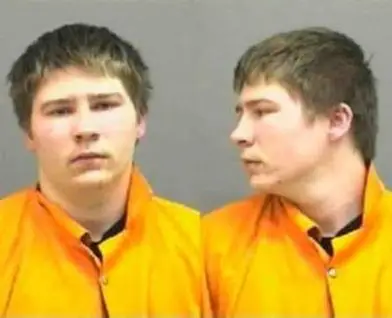CHICAGO (AP) — A federal appellate judge hearing arguments Tuesday in Chicago about whether investigators coerced a confession from a Wisconsin inmate featured in the “Making a Murderer” series said video of detectives questioning Brendan Dassey was so disturbing that it made her “skin crawl.”
But other judges at the full-court rehearing at 7th Circuit U.S. Court of Appeals in Chicago sounded unconvinced that investigators had improperly manipulated the intellectually challenged Dassey and encouraged him to tell them not what he actually did but what they wanted to hear.
If the court decides the confession was forced, Dassey could go free in a high-profile case that puts police interrogation practices in the spotlight.
The seven judges who heard the arguments seemed split, based on their questions.
A ruling is expected within the next few months.
Dassey, now 27, was sentenced to life in prison in 2007 in the death of photographer Teresa Halbach two years earlier.
He was 16 when he told detectives he helped his uncle, Steven Avery, rape and kill Halbach in the Avery family’s junkyard in Manitowoc County.
A federal magistrate judge overturned Dassey’s conviction last year, ruling that detectives took advantage of Dassey’s youth and cognitive disabilities to coerce his confession.
A three-judge panel from the appellate court later upheld the magistrate’s ruling, leading state attorneys to ask the full 7th Circuit for a review.
It was Chief Judge Diane Wood who most clearly signaled that she believed the detectives went too far, including by quoting a Biblical passage that the “truth would set him free” to suggest Dassey might be released if he confessed and by winning his trust by saying they were talking to him more as parental figures than as cops.
“The investigators made my skin crawl watching this video,” Wood said. “It was: ‘Tell me (the investigator) what I want to hear.'”
Wood noted that Dassey appeared disoriented, pausing for long stretches in the video. “He is obviously racking his brain about how he can answer … in a way (investigators) will like,” she said.
Dassey’s has a low IQ and struggles to grasp simple concepts, meanings and consequences, court filings say.
Wood said comments by Dassey during his interview strongly suggested he didn’t understand what was happening.
After appearing to confess to participation in a brutal slaying, she noted, he asked the detective if he could now go back to school.
Luke Berg, representing the state, argued that detectives had merely “nudged” a confession out of Dassey and that it wasn’t psychological manipulation that led Dassey to say what he did. “Brendan Dassey confessed,” Berg said, “because his guilt became unbearable.”
And Judge Diane Sykes told Dassey’s attorney, Laura Nirinder, there were no laws that explicitly barred her client’s interrogators from using the techniques they did.
Dassey has remained in prison while the state appeals.
Avery was sentenced to life in prison at a separate trial. He’s pursuing his own appeal in state court.
Both Avery and Dassey contend police framed them because they wanted revenge against Avery for filing a lawsuit against Manitowoc County over his wrongful imprisonment for a sexual assault he didn’t commit.
Their cases gained attention in 2015 after Netflix aired “Making a Murderer,” a series examining Halbach’s death that spawned widespread conjecture about Avery and Dassey’s innocence.
Authorities who worked on the cases said the series was biased.
___
This story has been corrected to reflect that the full, appeals court panel has seven judges, instead of 12.
Friendly Notice
Your Content, a digital media platform owned by Original Media Group Corporation, is an educational not-for-profit organization headquartered in Pennsylvania. The publication is run by a team of artists and journalists who create and publish content on a range of topics, including news, politics, lifestyle, and entertainment.
Recently, AtNight Media LLC (d/b/a AtNight Media Group) has expressed an interest in acquiring the publication. As part of the acquisition review process, Your Content's operations have been temporarily halted. The audit will involve a thorough evaluation of the publication's financial, legal, and operational aspects. This will ensure that the acquisition is in line with the best interests of all parties involved.
The temporary halt of operations means that Your Content's website and social media accounts will not be updated until further notice. However, the team at Your Content remains committed to delivering high-quality content to its readers and viewers. The publication will resume its operations as soon as the acquisition review is complete.
We apologize for any inconvenience caused and thank you for your understanding.

Your Content is a publication centered around breaking news, trends, and true crime investigations. Sign up to receive our biggest stories as soon as they’re published.
